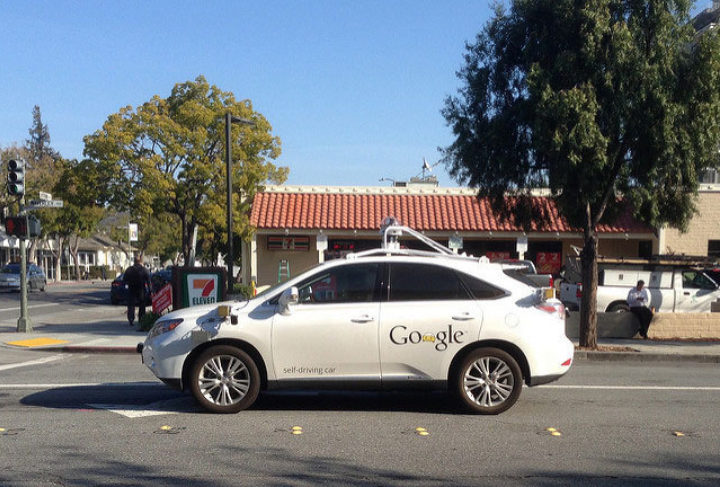Automatic for the People
What impact will autonomous vehicles have on the car industry?
By George Smeeton
Share
Last updated:
What became very clear recently, with publication of a Government consultation, is that electric vehicles (EVs) will form the cornerstone of Britain's new industrial strategy. At first glance, this is eminently sensible. Rapidly falling battery costs, rising EV range distances and widespread policy support from most governments globally mean that EVs are clearly a major part of the future personal transportation sector, and the UK is already a major player in vehicle manufacture.
But what if these assumptions are wrong? As anyone in the vehicle industry will tell you, whilst there will be a major transition towards electric vehicles in the next ten years, overlapping that will be a major transition towards autonomous (self-driving) vehicles (AVs) - and that could turn the economics of the industry upside down. Indeed, the very idea of what a car is, how it's designed, how its owned and how it's financed are set to fundamentally change.
Drive

The arrival of AVs is inevitable. What is impossible to predict is the timing of their arrival. Whilst all the major car manufacturers are working on AVs, Google, via its new company Waymo (a new WAY forward in MObility) is probably the most advanced, suggesting that car manufacturers need to adapt quickly, or die. They simply do not have the technological expertise of Waymo - although Waymo also does not have the manufacturing and vehicle sales expertise of the car manufacturers, something they are addressing through talks with Honda. Expect a wholesale churn of partnerships and mergers in this area, such as the recently announced partnership between Mercedes and Uber.
But far from being some distant sci-fi future, AVs are nearly here; Ford predicts their first AV sale to be in 2021, the same year as BMW. All new Teslas already carry all the hardware needed to be fully autonomous. The UK is behind the US, but there are some attempts here, notably the UK Autodrive project and Volvo’s West London Drive me trial. In short, expect to see AVs on UK roads in the mid to late 2020s.
But why would AVs disrupt the economics of traditional vehicle manufacture and sales? Well, for the simple reason that the characteristics of AVs lend themselves to car clubs and car sharing, and the economics of being a member of a car club will trump the economics of purchasing and owning your own vehicle, for most people.
Currently, the average UK car is parked for 96% of the time, which means that a) economically speaking, this is a tremendous waste of our assets, and b) that a large part of the UK is given over to parked cars (there are some 6.8 million parking spaces in London alone). Your car is less of a driving machine, and more of a parking machine.
Since AVs will be able to drive themselves to where needed, that 96% figure could plummet. You could either earn money from your own AV, or, more likely, rent someone else’s when you need to. Either way, fewer cars are needed. Indeed, a study of existing UK car clubs concluded that 8.6 private cars are removed from the road by each car club car - and today's car club cars don’t come to you, as AVs can.
Extrapolate this out and it means that we simply don’t need all the cars currently in existence in the UK right now. In fact, in theory we only ‘need’ the maximum number of cars that are currently in use at any one time - and if ridesharing (picking people up on the way) is adopted, then we need less. There will still be some people who want or need to own their car - salesmen, tradesmen, and wealthy people who can just afford it spring to mind, but for the majority giving up your car will leave you financially better off.
Furthermore, any system of paying at the point of use would be more likely to encourage people to think about the journeys they make. For instance, at the moment, 21% of journeys under a mile are undertaken by car or van, and over half the car journeys in this country are fewer than five miles.
Part of the reason for these stats is that psychologically, these journeys are considered ‘free’, so AVs may result in less journeys (and presumably, if walking and cycling replaces these journeys, we’ll be fitter - a useful thought when considering our creaking NHS). Less journeys reduces the demand for cars even further. Conversely though, AVs could eat into demand for the local bus, train and tram services, meaning there could be less cars, but more car journeys.
Everybody hurts

The brutal truth is that we simply can’t specifically estimate how individual AVs would be needed in the UK, but we can reasonably surmise that if the car club model is widely adopted, then the number of cars would plummet - and this would also most likely be replicated across Europe. All of a sudden, a cornerstone of our industrial strategy looks less secure.
Last year, the UK made 1.72m cars in the UK, and exported 1.35m of them. 56% of those exports went to the EU. These figures are great, but the rise of car-sharing AVs would mean that export demand drops like a stone - not good for our balance of payments, employment statistics and the Midlands, the centre of the UK car industry.
On current trends, something has to happen anyway. There are 245,000 miles of road in the UK now, compared to 184,000 in 1951 - a 33% increase. However there are now 35.6m vehicles on the road, compared with 4.2m in 1951 - an 848% increase. Cumulatively, those 35.6m vehicles drive 311 billion miles - up 841% from 1950. In short, our roads are getting more and more clogged up with the very things they are designed for.
Furthermore, transport also has the unwanted crown of being the sector with the highest carbon emissions - some 118 MtCO2e in 2015, and 61% of those emissions come from cars. A wholesale shift towards AV car clubs would therefore accelerate the decline in emissions needed to help us achieve our national carbon targets.
So, AVs are coming, and they bring with them some massive implications. Let’s hope that the UK manages these changes well, and that our car industry comes out in pole position, not at the back of the grid.
Share